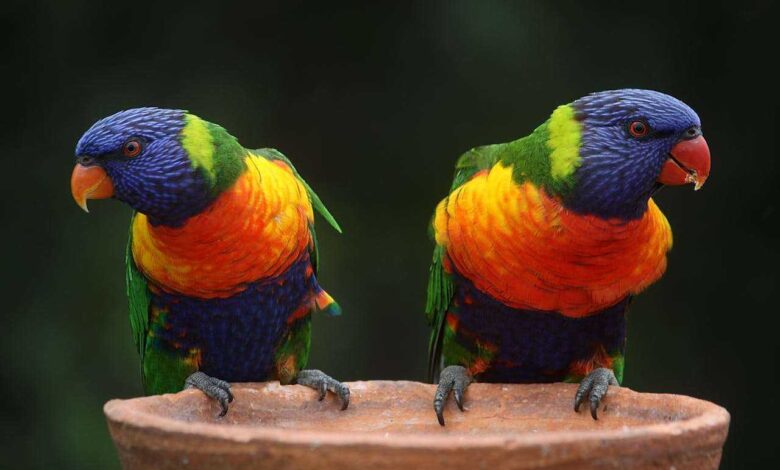Mastering the Art of Launching Bird Selling Business

Welcome to the captivating world of bird selling business, where passion for avian companions meets entrepreneurial spirit. In this comprehensive guide, we’ll delve into the intricate details of starting and flourishing in the bird selling industry. Whether you’re drawn to the art of bird breeding, envisioning a bustling bird store, or exploring the vast potential of online bird sales, our expert insights will pave the way for your success.
Planning Your Bird Selling Business
Bird Breeding Business:
Bird breeding offers a rewarding venture for enthusiasts with a keen eye for genetics and a love for nurturing avian life. Before diving in, research extensively to identify lucrative bird species, understand breeding techniques, and gauge market demand. Consider factors such as space, time commitment, and initial investment required for breeding facilities and equipment.
Opening a Bird Store:
Transition your love for birds into a tangible business by opening a bird store. Location is paramount—choose a high-traffic area with ample parking and visibility. Secure necessary permits and licenses, including business permits, zoning approvals, and health department certifications. Create an inviting ambiance with well-designed displays, comfortable seating areas, and knowledgeable staff to enhance the customer experience.
Online Bird Sales:
Embrace the digital age and expand your reach with online bird sales. Launch a user-friendly website or partner with established online marketplaces to showcase your birds to a global audience. Invest in professional photography, detailed product descriptions, and secure payment gateways to build trust with online shoppers. Prioritize shipping logistics and customer service to ensure a seamless buying experience.
Essential Steps for Success
Bird Business License:
Navigate the legal landscape of bird selling by obtaining the required licenses and permits. Research local regulations regarding pet sales, animal welfare standards, and breeding practices to ensure compliance. Consult with legal experts or local authorities to address any questions or concerns regarding licensing and regulatory requirements.
Best Birds for Pet Stores:
Curate a diverse selection of bird species that appeal to pet store customers. Consider popular choices like budgies, cockatiels, and finches, known for their friendly demeanor, vibrant colors, and ease of care. Partner with reputable breeders or wholesalers to source healthy and well-socialized birds that meet your customers’ expectations.
Bird Care for Beginners:
Educate yourself and your customers on the fundamentals of bird care to foster responsible pet ownership. provide comprehensive resources on housing, nutrition, grooming, and behavior training to empower bird owners to provide optimal care for their feathered companions. Offer hands-on workshops, informative seminars, or online tutorials to engage and educate prospective bird owners.
Maximizing Profits and Marketing Strategies
Breeding Cages for Birds:
Create a conducive environment for bird breeding with spacious and well-equipped breeding cages. Invest in durable materials, secure latching mechanisms, and easy-to-clean designs to ensure the safety and comfort of breeding pairs. Customize cages with nesting boxes, perches, and feeding stations to mimic natural habitats and encourage breeding behavior.
Wholesale Bird Suppliers:
Forge strong partnerships with reliable wholesale bird suppliers to maintain a consistent supply of quality birds for your store. Research reputable suppliers known for ethical breeding practices, health certifications, and diverse bird species. Negotiate favorable terms, including pricing, shipping arrangements, and product warranties, to maximize profitability and customer satisfaction.
Marketing Pet Birds:
Develop a strategic marketing plan to elevate your bird selling business above the competition. Utilize a mix of online and offline marketing channels, including social media, email newsletters, print advertisements, and community events, to promote your birds and attract potential customers. Leverage captivating imagery, compelling storytelling, and educational content to showcase your birds’ unique personalities and charm prospective buyers.
Legal Compliance and Setting Up Your Aviary
Legal Requirements for Selling Birds:
Prioritize legal compliance to build a reputable and trustworthy bird selling business. Research and adhere to local, state, and federal regulations governing bird sales, including licensing, health certificates, and import/export laws. Consult with legal experts or industry associations to stay updated on evolving regulations and ensure full compliance with animal welfare standards.
Setting Up a Bird Aviary:
Design a functional and aesthetically pleasing bird aviary to house your feathered inventory. Consider factors such as space, ventilation, lighting, and security when planning your aviary layout. Install sturdy perches, natural foliage, and enrichment toys to provide a stimulating and comfortable environment for your birds. Implement strict biosecurity protocols to prevent disease transmission and maintain a healthy bird population.
Launching Your Bird Selling Business
Congratulations on embarking on the exhilarating journey of starting your bird selling business! By leveraging the insights and strategies outlined in this guide, you’re equipped to navigate the complexities of the avian industry with confidence and success. Whether you’re breeding birds, opening a store, or venturing into online sales, remember to prioritize bird welfare, legal compliance, and customer satisfaction as pillars of your business philosophy.
FAQ: Bird Selling Business
What are the legal requirements for starting a bird selling business?
- Answer: Starting a bird selling business entails obtaining the necessary licenses and permits, adhering to local, state, and federal regulations governing animal sales, health certifications, and breeding practices. It’s crucial to research and comply with all legal requirements to operate your business legally and ethically.
How do I choose the best birds to sell in my store?
- Answer: Selecting the best birds for your store involves considering factors such as popularity, temperament, and suitability as pets. Research popular bird species among pet owners, assess their care requirements, and partner with reputable breeders or wholesalers to source healthy and well-socialized birds for your store.
What equipment do I need to start breeding birds for sale?
- Answer: Breeding birds for sale requires essential equipment such as breeding cages, nesting boxes, perches, and feeding stations. Invest in high-quality materials and designs that prioritize the safety, comfort, and reproductive needs of breeding pairs. Customize breeding setups to mimic natural habitats and encourage successful breeding behavior.
How can I attract customers to my bird store?
- Answer: Attracting customers to your bird store involves implementing effective marketing strategies, both online and offline. Utilize social media platforms, website optimization, email newsletters, and local advertising to reach your target audience. Host events, workshops, or promotions to engage with the community and showcase your birds and products.
What are the key considerations for setting up a bird aviary?
- Answer: Setting up a bird aviary requires careful planning and consideration of factors such as space, ventilation, lighting, and security. Design the aviary layout to provide ample space for birds to move and fly comfortably. Install natural perches, foliage, and enrichment toys to stimulate natural behaviors and promote bird welfare.
Do I need to breed my own birds, or can I purchase them from wholesalers?
- Answer: You have the option to breed your own birds or purchase them from reputable wholesalers. Breeding your own birds allows for greater control over genetics and breeding practices but requires time, space, and expertise. Purchasing birds from wholesalers offers convenience and a diverse selection but requires careful vetting of suppliers for quality and ethical breeding practices.
What marketing strategies are most effective for selling pet birds online?
- Answer: Effective marketing strategies for selling pet birds online include creating a user-friendly website or online marketplace, optimizing product listings with high-quality images and detailed descriptions, and utilizing social media platforms to reach potential buyers. Engage with online communities, share educational content, and offer promotions to attract and retain customers.
Are there any specific health concerns I should be aware of when selling birds?
- Answer: When selling birds, it’s essential to prioritize their health and welfare. Educate yourself and your customers on common health issues, preventive care measures, and signs of illness. Partner with avian veterinarians for regular health checks and screenings to ensure the well-being of your birds and provide customers with peace of mind.
What are the benefits of selling bird supplies and accessories in addition to birds?
- Answer: Selling bird supplies and accessories alongside birds can increase revenue, enhance customer satisfaction, and build long-term relationships with customers. Offer a range of products such as cages, toys, perches, and food to meet the needs of bird owners and provide one-stop shopping convenience.
How can I stay informed about industry trends and best practices in bird selling?
- Answer: Stay informed about industry trends and best practices by joining professional associations, attending trade shows and conferences, networking with fellow bird enthusiasts and business owners, and engaging with online forums and publications dedicated to the pet industry. Continuously educate yourself and adapt your business strategies to meet evolving market demands and consumer preferences.








